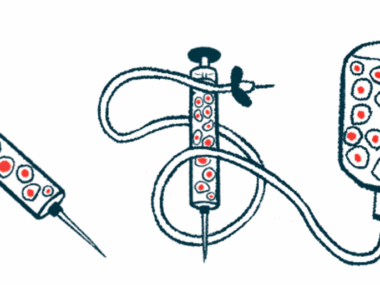First healthy volunteer dosed in study of HER-096 for Parkinson’s
Top-line data on safety, tolerability expected by year's end
Written by |

The first healthy volunteer has been dosed in a clinical study that will test the safety and efficacy of Herantis Pharma’s HER-096 treatment candidate for Parkinson’s disease, the company announced in a press release.
The Phase 1a clinical trial also is evaluating the ability of HER-096 to penetrate the blood-brain barrier — a biological roadblock of sorts that prevents bacteria and parasites in the bloodstream from getting into the brain, but which also stops medications from doing so.
The therapy, given by subcutaneous or under-the-skin administration, is designed to retain the biological activity of cerebral dopamine neurotrophic factor (CDNF), a protein with neuroprotective properties.
“This is an important milestone on our way towards developing a disease-modifying therapy for slowing or stopping the progression of Parkinson’s disease which is a major unmet clinical need today,” said Antti Vuolanto, CEO at Herantis Pharma, adding, “If the results are in line with our expectations, we will move on to study HER-096 in Parkinson’s patients.”
The company expects to obtain topline data by the end of the year.
Study is still recruiting healthy volunteer participants in Finland
The trial, which will take place in Turku, Finland, aims to recruit around 60 healthy volunteers — men ages 20-45 who do not take any medications regularly. Participants will be given single ascending doses of HER-096 or a placebo. More information about the study and participation can be found on its website.
CDNF is a protein naturally present in blood and cerebrospinal fluid, which is the liquid filling the brain and spinal cord. In preclinical studies, CDNF was shown to have neuroprotective and neurorestorative properties in several neurodegenerative conditions, including Parkinson’s.
As a protein, CDNF has limited access from the blood to the brain due to the blood-brain barrier, a semipermeable membrane that acts like a cellular wall and prevents certain substances from the blood from passing into the brain. In a Phase 1-2 clinical trial (NCT03295786), CDNF was administered using a brain-implanted delivery device that directly targets a key brain region affected in Parkinson’s, called the putamen.
Participants in that trial, including 17 Parkinson’s patients, received monthly infusions of either CDNF (mid- or high-doses) or a placebo for six months.
According to the company, the results demonstrated that CDNF was safe and well tolerated in advanced Parkinson’s patients. The data also showed a positive trend in the reduction of slowness of movements, called bradykinesia, among patients, as well as a trend toward reduced disease severity.
However, intracranial administration does not allow for the treatment of individuals with early-stage Parkinson’s, who would be the optimal patient population for testing this therapy, according to the company. That’s because of the higher number of dopamine-producing nerve cells in the brain that can be rescued upon treatment in these patients.
If the results are in line with our expectations, we will move on to study HER-096 in Parkinson’s patients.
HER-096 is an engineered derivative of CDNF, designed to reach the brain after non-invasive subcutaneous administration. In preclinical models, it was shown to penetrate the blood-brain barrier, allowing appropriate subcutaneous dosing, which constitutes a major benefit, given that the treatment could thus be administered to Parkinson’s patients at earlier disease stages.
According to the company’s website, following a single subcutaneous injection, the levels of HER-096 in the brain were 20% higher than in the blood, exceeding the therapeutic levels, in a rat model of the disease.
HER-096 improved the functional recovery of neurons through a multimodal mechanism of action, acting on cellular stress, inflammation, and the accumulation of protein clumps or aggregates — all key processes that affect the progression of Parkinson’s. Given this data, the company believes the therapy has the potential to slow Parkinson’s progression and improve patients’ quality of life.


